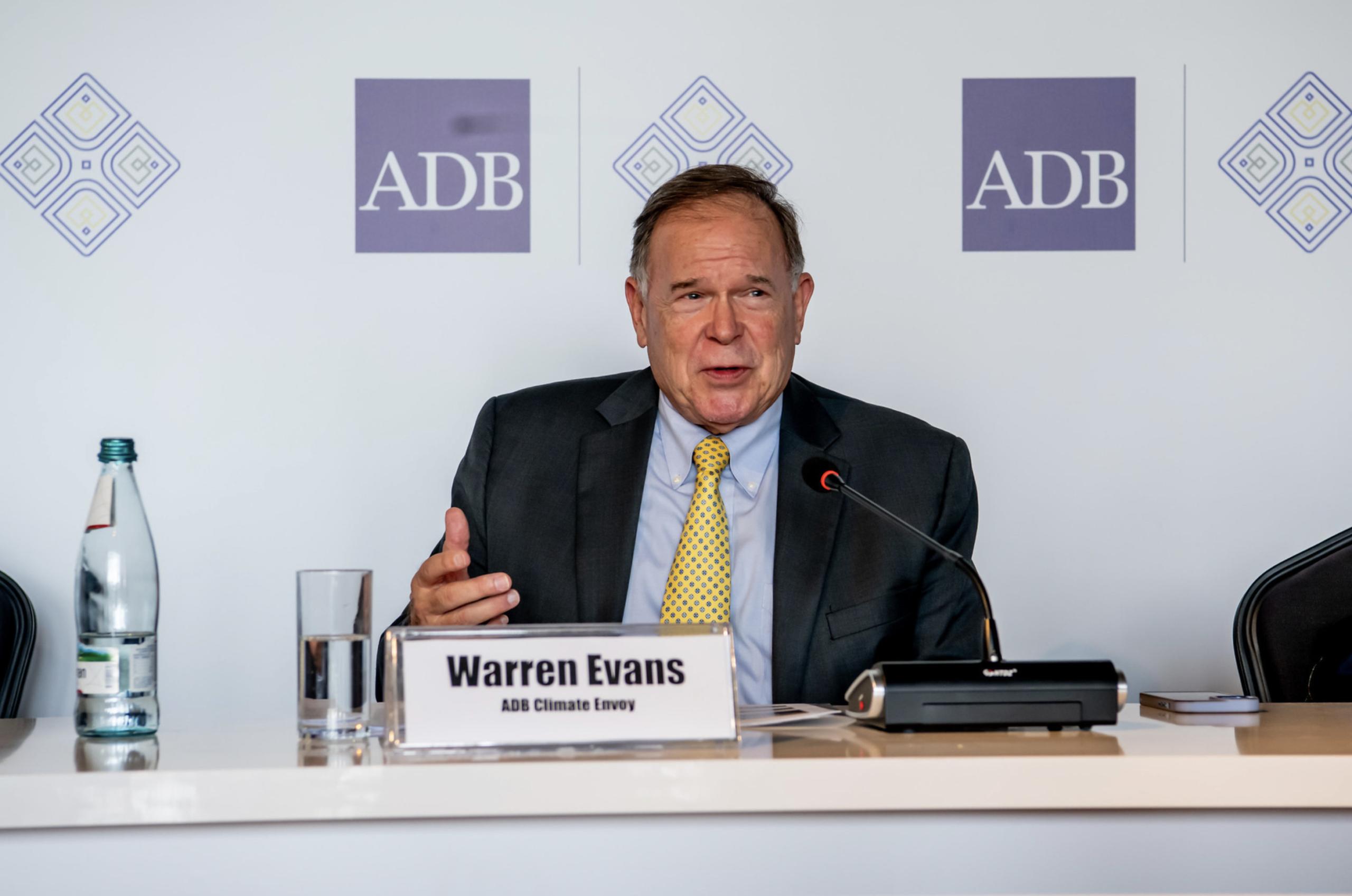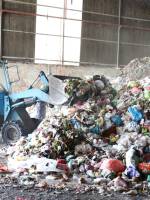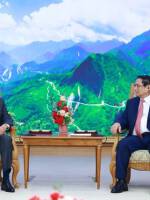
The Asian Development Bank (ADB) will be willing to support climate change adaptation projects in Vietnam if the country requests its joining, ADB climate envoy Warren Evans told reporters on the sidelines of ADB’s 57th Annual Meeting, which took place in Tbilisi, Georgia from Thursday to Sunday last week.
“If the Vietnamese government asks for help, I am sure that ADB will be pleased to join projects aimed at combating climate change, improving resilience to climate, and moving toward sustainable development,” Evans told Tuoi Tre (Youth) newspaper.
Apart from highly valuing Vietnam’s importance in global rice supply, Evans pinpointed some challenges to the industry in the Southeast Asian country.
He said that the Mekong Delta region, known as the nation’s biggest rice production hub, is facing abnormal drought and severe saline intrusion.
Climate change, saltwater intrusion, and Vietnam’s commitment to a net-zero emission target by 2050 require the country to adopt more effective measures to manage and use land, water sources, and fertilizer.
“In Vietnam, we have multiple initiatives related to water resource management with the aim of helping the country with the fight against drought,” the envoy said.
ADB had previously financed a project to restore and sustainably manage mangrove forests in five provinces in the delta in a bid to foster their adaptation to climate change.
Besides, the bank has been joining several projects to develop the renewable energy, electric vehicle, and battery storing fields in Vietnam over the past few years.

ADB had previously pledged US$2.1 billion for Vietnam to carry out the Just Energy Transition Partnership Agreement, as well as the Energy Transition Mechanism, a new financial tool for coal-fired thermal power plants that will soon stop operations and use cleaner energy sources.
On Sunday, the final day of the 57th Annual Meeting, the ADB board of governors approved the bank’s 2023 financial statements and a $1.42 billion net income allocation from its ordinary capital resources, the highest in ADB’s history.
Of the total, over $1 billion will be channeled into ADB’s ordinary reserve to support the bank’s capital growth and provide an earnings base to generate income.
The rest will be allocated to the Asian Development Fund, which provides grants to ADB’s poorest and most vulnerable developing member countries, the Technical Assistance Special Fund, and the Asia Pacific Disaster Response Fund.
Speaking at the session of the ADB board of governors, deputy governor of Vietnam’s central bank Dao Minh Tu underlined that ADB could do better in numerous aspects.
Tu proposed ADB step up its efforts to mobilize more preferential financial sources for climate-related activities.
The Vietnamese representative also suggested considering a review of the outcomes of grants for green investing and reclaiming grants allocated to projects deemed ineffective.
“ADB is in a favorable position to host regional forums to discuss challenges and impacts on the economies, exchange experience in various fields, and put forward solutions to general recovery,” Tu stressed.
Vietnam is committed to fulfilling its mission of boosting sustainable economic growth, financial stability, and close cooperation with relevant partners to build a more flexible and perfect financial system.
Tieu Bac – Duy Linh




